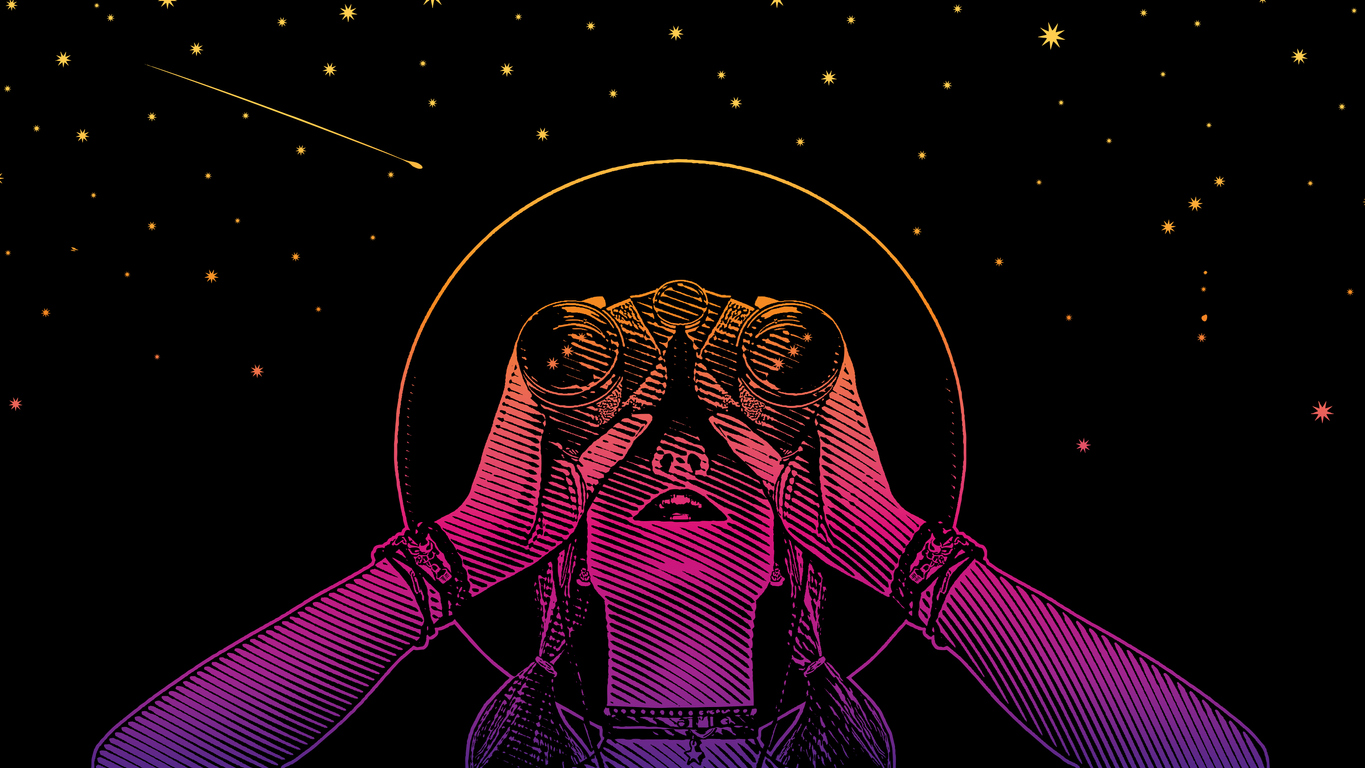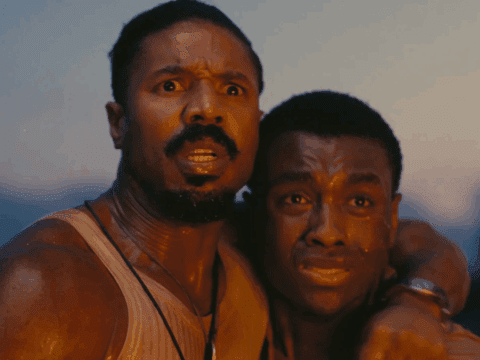Some straight people love wondering — mainly the kind who don’t actually know any LGBTQ people — who’s who in a queer couple. Who’s the boy, and who’s the girl? Who’s on top, who’s on bottom? It’s all very regressive and tired, and us queers actually have a much better inside joke: who can drive and who knows astrology?
I’m nearly 30 years old and only have an Ontario G1 (learner’s) license — my second, since the first expired. But I do have an app that gives me a daily horoscope tailored to my exact time of birth. So you can guess which one I am.
You may unsubscribe from any of our newsletters at any time.
It’s an inside stereotype so common that it feels less stereotype and more truth — queers love woo. Woo, as in, the sound you make while wiggling your hands like you’re casting a spell and sparks are flying out of your fingertips.
Woo is my collection of tarot cards, and my cache of different-coloured candles, and my miniature cauldron with a pentagram on the side, and my small but carefully curated library of books that can tell you the spiritual properties of various herbs.
I’ve been collecting these things since I was a preteen. Like many other girls who came of age in the ‘90s, the influence of The Craft and Sabrina the Teenage Witch led my friends and I to explore witchcraft. I remember nights spent in the dark park by my elementary school, sitting cross legged on top of the jungle gym. We’d bring our spellbooks and candles to recite incantations. We’d read aloud spells to bind the boy at school who was bothering us, writing down his name on a scrap of paper before burning it.
Even if we weren’t totally serious about these rituals — and there are, of course, many witch-identified people in the world — they scratched at an itch deep within me.
I was raised without any religion or spirituality in my life, my only exposure being the odd funeral or wedding. I’ve always identified as an atheist and happily so. And yet, those memories, of calling out the names of goddesses under a canopy of stars, of looking for the future in a bowl of water under the full moon, opened a part of me that was otherwise closed. It created a time and place to look between what’s tangible, to wonder just for a moment if we’re connected by more than just cells and sinew.
More on Broadview: Why I left the United Church to become a Roman Catholic
I was also thoroughly embarrassed about them. Spirituality was so foreign to me that I didn’t know how to process it as anything other than silly. I felt silly. Certainly, none of my peers had continued on with the woo after our childhood dabbling.
My mementos and tools of that time have moved from box to box as I moved away from home and from apartment to apartment. As I got older, those items increasingly stayed in those boxes, dust collecting on the lids. I couldn’t bear to throw any of it out, but I also couldn’t put my shame aside.
It took until I was 23 to realize I’d been pushing down another deep shame — my sexuality. It had always been there, simmering beneath the surface, but whenever it had appeared in my high school and university years, I’d pushed it back down as far as it could go.
The short story of my coming out was that I thought I was straight, until it dawned on me that I really, really wasn’t because I was really, really gay. It was scary, liberating and exhilarating, but also isolating. My friends and family were supportive, for which I’ll always be grateful, but I was a lone queer in a straight social circle. So, one of my first priorities was finding my community.
One of the last things I expected to find was my forgotten woo, but there it was. I’d go to queer events and there’d be a tarot reader. I’d go on Tumblr and see queer astrology memes. I remember attending a queer zine fair and snapping up any issue with so much as a crescent moon. I started attending writing workshops led by a femme, genderqueer witch who led us in sing-song chants that made my head tingle.
As I found my queerness, I rediscovered my woo, and I realized that I was not alone at all.
Queerness and new-age spiritual paths seem to go hand in hand. It’s not all queers, of course, but the connection is there, and it’s powerful. As Mashable reported, the LGBTQ community’s fondness for astrology, in particular, goes way back. But astrology and the occult are also having something of a renaissance right now. Astrology seems bigger than ever, you can get crystal necklaces at Forever 21, and Sephora was even ready to sell a beginner witch kit last year before backlash changed their mind.
Is hasn’t all been smooth sailing. Part of the Sephora backlash was the inclusion of white sage for smudging — one of many Indigenous practices often thoughtlessly appropriated by settler practitioners. And while people in the West — particularly white people — are free to dabble with little consequence, those in other parts of the world face terrible consequences for practicing their traditions.
The stars don’t care if you’re gay. Tarot cards don’t care what your gender is. My crystals aren’t going to excommunicate me for living with my girlfriend.
The way I and people like me access this kind of spirituality is certainly a privilege, and it’s not hard to see what attracts us. It makes sense, really. When the world feels chaotic, looking to the stars gives you back a sense of control, a sense that something greater is at work. And even now, queers are leading the charge. As pointed out in a Hello Giggles story, some of the most followed astrology accounts on social media are run by LGBTQ folks.
For queers, it’s a way to access spirituality without the rigid dogma and history of homophobia found in formal religion. The stars don’t care if you’re gay. Tarot cards don’t care what your gender is. My crystals aren’t going to excommunicate me for living with my girlfriend.
In these spiritual practices, there is no clergy, no gatekeeper. It’s just you and the cosmos. It’s pure liberation. It’s what LGBT people are still, to this day, denied in so many areas of our lives.
But the most beautiful thing I found in the queer community is how we use these practices to care for one another. Coming together as a circle to call the elements is a very literal act of supporting one another and keeping each other safe. Giving a friend insight through a tarot reading is a means of helping them work through whatever struggle they may be facing. We can use these tools — herbs, crystals, reiki — to heal each other. The healing we need is greater than any of us can fix on our own, the injustices too deep. But, for me, these things help. They push the needle.
At this point, whether this stuff “works” doesn’t matter to me. It’s no longer about belief, it’s about the practice of care. It’s about scratching the itch my teenage self was so much less scared to satisfy. My community, my spirituality, and my identity can all connect, like a shining constellation, even through whatever simplified version of spirituality I indulge in.
I don’t know if I’ll ever fully commit myself to those spiritual paths in the way that so many others I respect do. But, for now, those boxes have been dusted off and rather than ashamed, I feel nourished.
For more of Broadview’s award-winning content, subscribe to the magazine today.
















Organized religion is not for everyone. We each are responsible for our own spiritual health.
Thank you for such a thoughtful and inclusive perspective on the intersection of astrology, spirituality, and the LGBTQ+ community. It’s inspiring to see how you’ve highlighted the ways these aspects can empower individuals and create a sense of belonging. Truly a beautiful read!